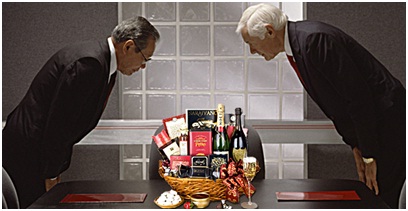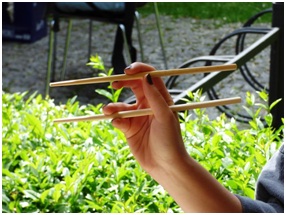Oriental cultures are amongst the oldest in history and even today daily life is steeped in ancient culture and traditions. Japan is a fine blend of technological advancements and ancient culture. It is a conservative society and regards traditions with devotion. For a first-timer to Japan, here are a few tips to help you get acquainted with the "Land of the Rising Sun."
Food: Since Japan is an island nation, its cuisine consists predominantly of sea food. Japanese cuisine is less spicy and meats are mostly eaten raw. Some popular examples are sukiyaki (thinly sliced beef with vegetables, tofu and vermicelli), sushi (raw piece of seafood placed on a ball of vinegared rice), tempura (seafood or vegetables coated in a mixture of water, eggs and wheat flour and deep fried in oil), sashimi (raw fish with soy sauces), etc.
Language: The Japanese language is probably harder to learn due to the use of symbolic representations. The best thing that you can remember, and use as often as possible, is "arigatou gozaimasu" (thank you very much). The Japanese give as much importance to body language as that to the spoken form. For example, it is considered rude to point your finger at someone or something. Make a sweeping hand gesture instead.
Footwear! All Japanese homes, temples and some establishments will require you to remove your footwear and wear slippers (where provided). If slippers aren't provided, you should be wearing socks.
Commerce: Carry cash. Only the big stores will accept credit cards. Also, at Japanese business establishments, there is usually a small tray laid out on the cashier's table. It is considered rude to hand out money to the cashier. Instead, place the cash on the tray and expect to receive the change in the tray.

Etiquettes: The Japanese give paramount importance to etiquettes during public interactions. The "bow" is probably the best known Japanese etiquette. Bows can differ in types by the depth and time. It can be a gentle nod, a respectful bow or an immensely respectful bow, wherein the person bows at an angle of around 45 degrees at the waist, keeping the hands at the sides (ladies can join the hands near the waist).

How to Hold Chopsticks Dining: Dining is considered an ethereal experience to be savoured and remembered for a long time. Never use chopsticks that you've put in your mouth to pick up food from communal dishes. Never stick your chopsticks in your food; they should be kept at the sides of the plate. Never keep the chopsticks with their points directed at someone. It is considered hostile. Eat everything that is laid on the plate.
Business Do's: If you are on a business trip, NEVER be late for a meeting. It is considered extremely rude and unprofessional. Also bring along your meishi - business cards. To present your card to someone, you hand them using both your hands and bow as you do it. Use last names with the honorific - san. Don't start jumping to first names until you have made friends with your business associates.

Other Don'ts: Never tip anyone in Japan. It is considered impolite. Whether it be waiters, cab drivers, or any person who is offering you service; they consider serving you their responsibility and do not expect being tipped for it. They consider their salary for their job as sufficient monetary remuneration.
Every culture has its own set of rules which sets it apart from the other. Many-a-times, one culture's behaviour can be regarded as rude by the other. It is vital for anyone who wishes to travel to a distant country to understand and appreciate the basic underlying principles of its culture so as to have a gratifying experience.
Disclaimer: Insurance Awareness initiative.
ICICI Lombard General Insurance Company Limited,
ICICI Lombard House,
414, Veer Savarkar Marg,
Prabhadevi, Mumbai - 400025.
IRDA Reg. No. 115.
Toll Free 1800 2666
Fax no - 022 61961323.
Email us at customersupport@icicilombard.com
Visit www.icicilombard.com
CIN: (U67200MH2000PLC129408). EC014AA1889IA